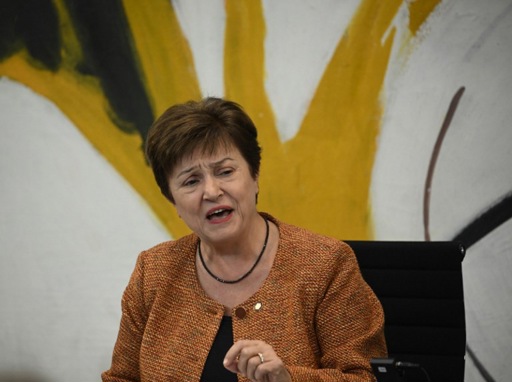The head of the International Monetary Fund (IMF) has forecast that one-third of the world's economy will be in recession this year, including half of all EU Member States, as a result of the economies of the EU, China, and the US "all slowing down simultaneously".
In an interview on CBS's Face the Nation, IMF Managing Director Kristalina Georgieva also noted that she expected 2023 to be a "tough year, tougher than the year we leave behind", and claimed that even citizens of countries not facing a recession will experience economic pain that will "feel like [a] recession".
"The EU [has been] very severely hit by the war in Ukraine," Georgieva said. "Half of the European Union will be in recession next year. China is going to slow down this year further. Next year will be a tough year for China. And that translates into negative trends globally."
Georgieva added that for developing economies, many of whose dollar-denominated debts are increasing in real terms against the backdrop of an ever-strengthening dollar, "the picture is even direr".
"For economies that have a high level of [dollar-denominated debt], this is a devastation," Georgieva said.
The US economy to the rescue?
During the interview, Georgieva suggested that the US is potentially the one economic force that could prevent the world economy from experiencing an even more profound economic malaise.
"The US is most resilient," Georgieva said. "The US may avoid recession. We see the labour market remaining quite strong. This, however, is a mixed blessing because if the labour market is very strong, the Federal Reserve may have to keep interest rates tighter for longer to bring inflation down."
Georgieva also praised the US's recently-passed infrastructure bill and the Inflation Reduction Act for "bringing more dynamism" to the US economy, but noted that, with the global economy doing as poorly as it is, there is still a risk that the US will enter a recession this year.
"I do hope that the US is not going to slip into recession despite all these risks," Georgieva said. "But if that resilience of the labour market in the US holds, the US would help the world to get through a very difficult year."
'Stay the course' on inflation
Georgieva also called for central banks to "stay the course" when it comes to tackling rampant inflation, and in particular suggested that they should maintain high interest rates until they see a "credible decline in inflation" at the risk of further inhibiting global growth.
"Our big worry is that with the economy slowing down globally, we are projecting global growth to go down to 2.7%, maybe even lower next year," Georgieva said. "And it will continue to drop down if central banks get the cold foot and say, 'oh, my God, growth is slowing down, let's slow down the fight against inflation.' We risk then inflation to be more persistent. So our message is to central banks, you have to see a credible decline in inflation and only then you can think about re-calibrating rate policy."
Related News
- 'Empty spaces in city centres': Bankruptcies in Belgium set to increase in 2023
- IMF wants Belgium to save at least €4 billion next year
Formed along with the World Bank, its sister institution, at the famous Bretton Woods Conference in 1944, the IMF is officially mandated with "promoting global macroeconomic and financial stability".
According to former Chief Economist of the World Bank and Economics Nobel Prize winner Joseph Stiglitz, however, the IMF, through its 'structural adjustment programmes' of mass privatisation, trade liberalisation, and deregulation, has in fact actively exacerbated numerous economic crises around the world throughout its history, including in East Asia in 1997, in Argentina in 1998-2002, and in Greece over the last decade.

